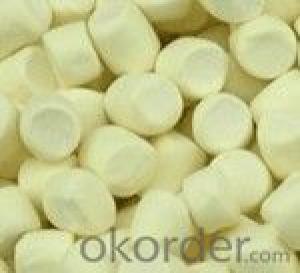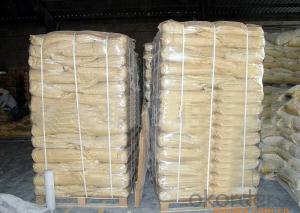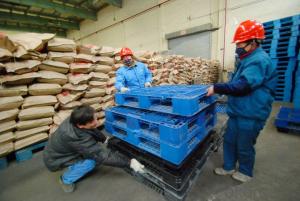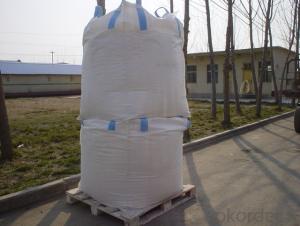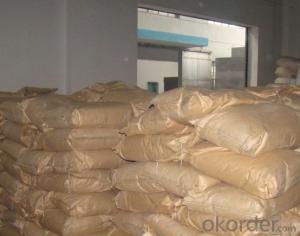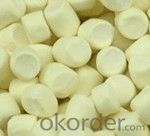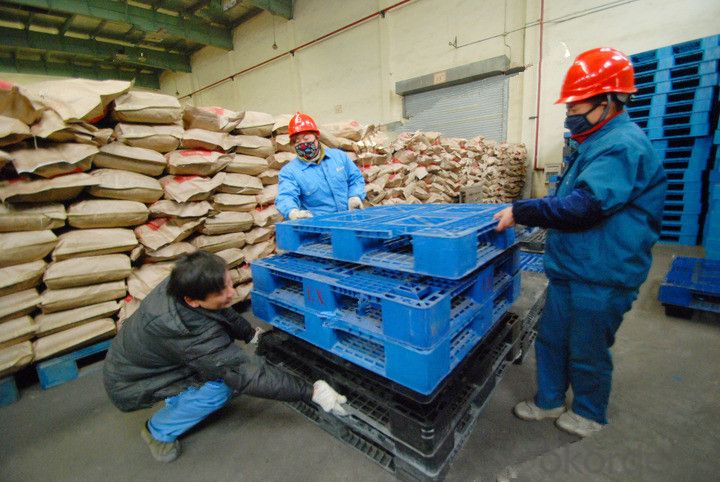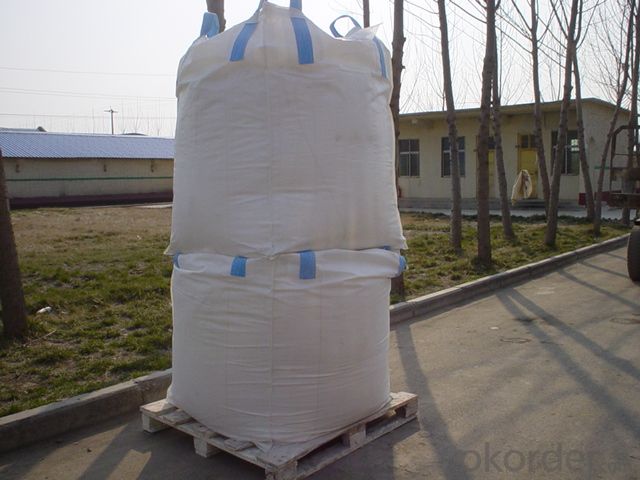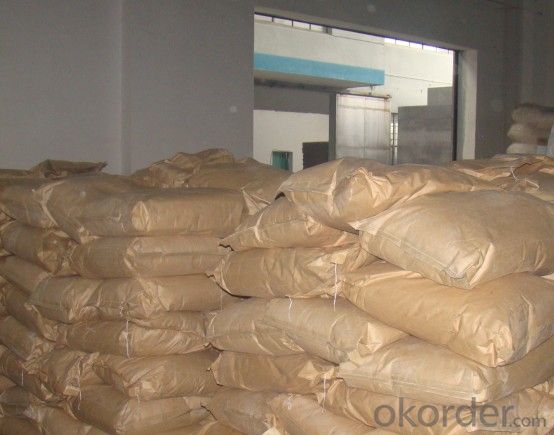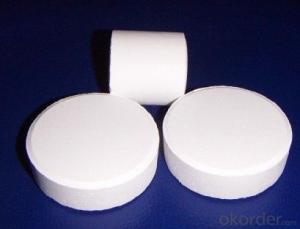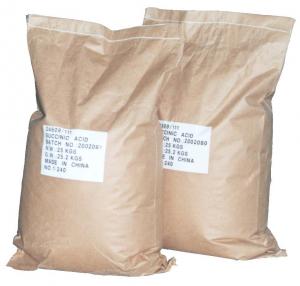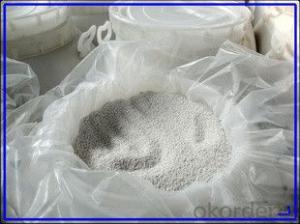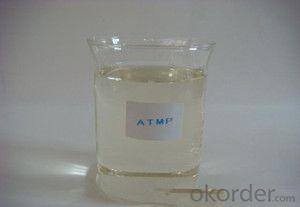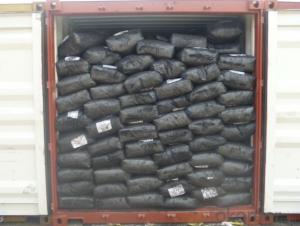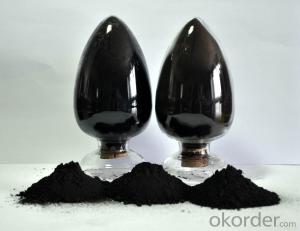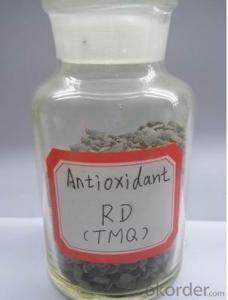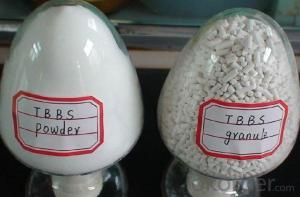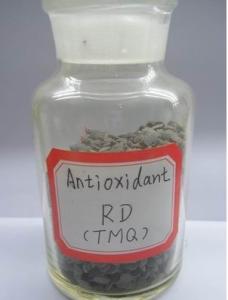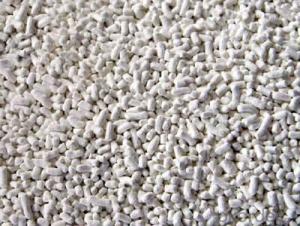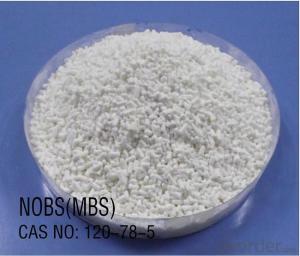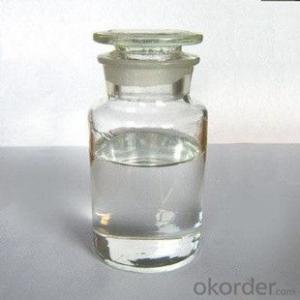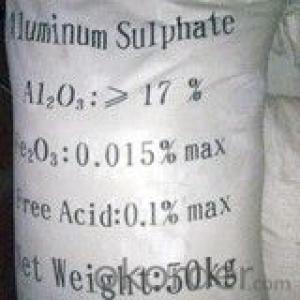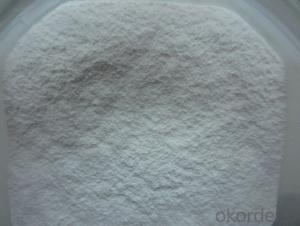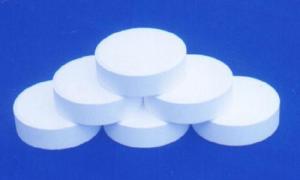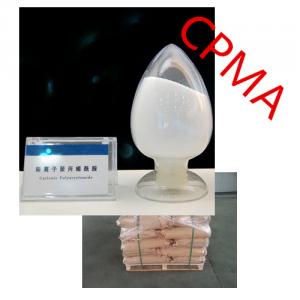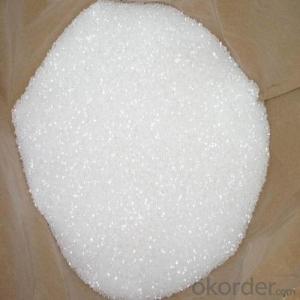Rubber Chemcials Rubber Antioxidant Model TMQ
- Loading Port:
- Tianjin
- Payment Terms:
- TT OR LC
- Min Order Qty:
- 25 m.t.
- Supply Capability:
- 12000 m.t./month
OKorder Service Pledge
OKorder Financial Service
You Might Also Like
RD (TMQ)
Chemical Name:2,2,24-Trimethy 1-1,2- Dihydroquinoline content
Molecular Weight: (173.26)n
CAS No.:26780-96-1
Executive standard: GB/T 8826-2003
Specification:
Item | Index | ||
High Content | High Class Product | First Class Product | |
Appearance | Amber to light brown flake or granular | ||
Softening Point ℃ | 90.0+10.0 | 80~100 | |
Heat Loss % ≤ | 0.30 | 0.30 | 0.50 |
Ash% ≤ | 0.20 | 0.30 | 0.50 |
Assay % ≥ | 77.0 | -- | -- |
Isopropyl-bis aniline % ≤ | 0.20 | -- | -- |
Issolubles in alcohol % ≤ | 0.50 | -- | -- |
Properties: Pale yellow to amber power or thin.Nontoxic Not soluble in water, soluble in benzene.Chloroform,acetone and carbon disulfide,Miro-soluble petroleum hydrocarbons.
Application:The product is particular excellent kinds od eneral-purpose ammonia anti-ageing agent.Ti particular suit to full-stell,semi-steel radial tire and it apply to many kinds of the tires,rubber tube,gummed tape, rubber overshoes and general industrial rubber producers and also suits to emulsion products.
Packing:25kg paper bag inner with PE bag.
Storage:The product should be stored in the fry and colling place with good ventilation. The product should be avoid hot sunshine.
- Q: Hydrogen and oxygen in the role of the catalyst can do the chemical formula of aviation fuel?
- You two yeah? Meaning that hydrogen is ignited in oxygen to release energy to push the rocket forward, as the catalyst for those who love,
- Q: Why can't catalysts make an unfavorable reaction favorable?Can anyone give me a relatively simple explanation for this?Thank you so much in advance!
- Catalysts, as enzymes, only change the activation energy (the energy the compound needs to gain to transform into products), they don't change the Gibbs energy values of reactants nor products. Therefore, if the delta G of the reaction is positive, it'll still need free energy to complete. They make a reaction complete faster than in normal conditions, but don't change the actual possibility for that reaction to happen. In the human body, a lot of reactions of catabolism have a positive G value and these reactions needs to get energy from other coupled reactions that have a negative value, so the total value is still negative. Many of them use hydrolysis of ATP to provide that energy, as its hydrolysis is about -30 kJ/mol in physiological conditions. I don't know what class you're in to ask this question, so can't really know if this answer is too simple or complicated for u... sorry in advance! Jo?l
- Q: Is the catalyst in the field of inorganic chemistry?
- In particular, the chemical and homogeneous catalysis of inorganic chemistry has deep origins. Inorganic chemistry, oxides (such as metal oxides), family elements (such as the chemical behavior of transition metal elements) can be provided for catalytic science Support and guidance.
- Q: How do I write about the ion equation?
- 4NH3 + 5O2 == 4NO + 6H2O
- Q: Is the catalyst in the chemical reaction better?
- If the concentration of the liquid is too low, then the catalyst is also ineffective
- Q: hey people i need your help about my science lab report...the question on my paper says "what function the catalyst?....please help me on this one...i would really appreciate if you leave me answers....much mahalos to all you folkss...thanks
- lowers the activation energy of a reaction so it happens at a faster rate
- Q: Hydrogen and nitrogen in the high temperature and pressure and catalyst conditions for the synthesis of ammonia chemical equation
- 3H2 + N2 catalyst iron ---> 2NH3 conditions high temperature and high pressure
- Q: In the chemical reaction will have to use the catalyst reaction, such as H2O2 === (MnO2) H2O + O2 ↑, then the catalyst in the end to participate in the reaction (that is, the catalyst itself is the reactant) If so, why are some of these substances in the reaction (these substances refer to the catalyst) in the reaction after the quality and nature of the change does not change?
- In the chemical reaction can change the chemical reaction rate of other substances (both can also improve), and its own quality and chemical properties in the chemical reaction before and after the material did not change called catalyst (also known as catalyst)
- Q: Chemical reactions in the presence of impurities will cause catalyst poisoning, how to understand this sentence
- This is in the chemical balance, but also alone
- Q: Write a chemical formula in a chemical laboratory without the use of a catalyst for oxygen
- 2KMnO4 = K2MnO4 + MnO2 + O2 ↑ ~ conditions are heating
Send your message to us
Rubber Chemcials Rubber Antioxidant Model TMQ
- Loading Port:
- Tianjin
- Payment Terms:
- TT OR LC
- Min Order Qty:
- 25 m.t.
- Supply Capability:
- 12000 m.t./month
OKorder Service Pledge
OKorder Financial Service
Similar products
Hot products
Hot Searches
Related keywords
